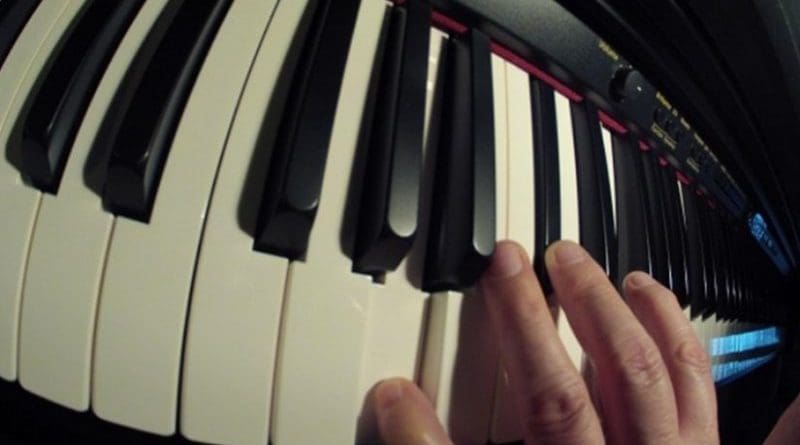Pioneering Jazz Musician Dave Brubeck Dies
By VOA
By Doug Levine
Jazz pianist and composer Dave Brubeck died Wednesday in Norwalk, Connecticut of heart failure. He was 91. Brubeck rose to fame in the 1950s and became known the world over. His recordings cover a wide spectrum of music including jazz, classical, spiritual and even pop.
Many believe that Dave Brubeck’s “Blue Rondo A La Turk” from his groundbreaking 1959 album “Time Out” ushered in a new era for jazz. Like others on the album, it was a song that combined complex time signatures with classical, jazz and Third World rhythms.
David Warren Brubeck was born in Concord, California and was first exposed to music by his mother, a classically trained piano teacher. He discovered jazz improvisation while studying with French composer Darius Milhaud. His interest in jazz was fueled by the formation of the Dave Brubeck Quartet and his own label Fantasy Records.
Following World War II, his group found work in small towns across America. Brubeck said those thriving jazz clubs provided his finest training.
“When I grew up almost every bar had a small combo and there were dance halls that we used to drive across this country, from one dance hall — and maybe 200 or 300 miles — the next day we’d be in a different dance hall. Great dance halls clear across the open part of Nebraska and those towns, and we’d come across that way. It’s changed a lot because most of our jazz now is in the universities and colleges [that] have taken over the old way that we used to have…a way to learn was one-on-one next to an old veteran.”
The Dave Brubeck Quartet consisted of Paul Desmond on alto saxophone, Joe Morello on drums, Eugene Wright on bass and Dave Brubeck on piano when they recorded the Desmond classic “Take Five.” The song was so successful that it earned a spot on the popular music charts.
One of Brubeck’s best-selling albums was “Jazz Goes To College,” recorded in American coffeehouses and college auditoriums during a tour in 1954. It sold more than a million copies and landed Brubeck on the cover of Time magazine.
Brubeck believed that the younger generation played an important role in shaping the direction of jazz.
“What we’re going to have now is the individual who’s come out of this group of people that respect the past,” he said. “Because you really can’t take a step forward until you know what was behind you.”
The Dave Brubeck Quartet continued to tour and record until 1967 when Brubeck decided to pursue jazz-based symphonic works and sacred music. A seasoned world traveler, he recorded several albums based on his reflections of other cultures. Among them, were “Jazz Impressions of Eurasia,” “Jazz Impressions of Japan” and “Moscow Night.”
In 1993, Dave Brubeck teamed up with his sons Chris on bass and Dan on drums to record “Trio Brubeck.” Three years later, he won a Grammy Award for Lifetime Achievement, and in 2009, he was the recipient of a Kennedy Center Honor. His son Chris once remarked, “Making music together is the most natural thing in the world for this family.”
Dave Brubeck died Wednesday December 5, one day before his 92nd birthday.

